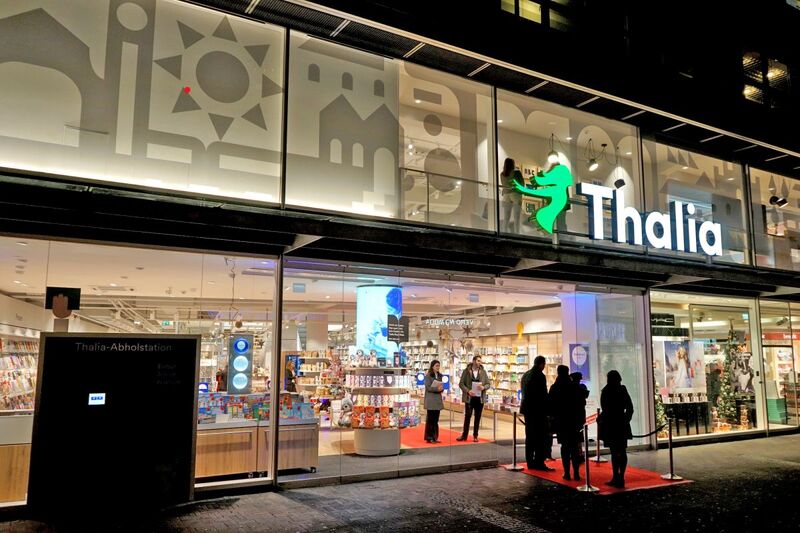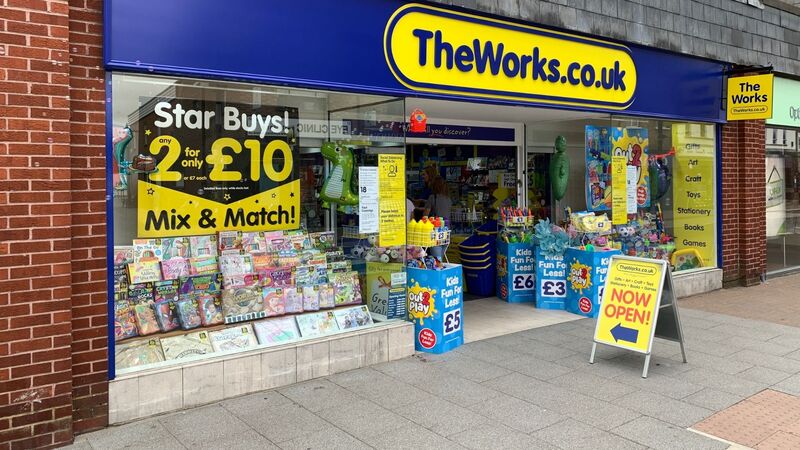You are viewing your 1 free article this month. Login to read more articles.
Rosewell outlines shape of new Net Book Agreement
A viable Net Book Agreement for today's UK industry might stipulate that books should be sold at printed prices for a minimum of 30 days, independent bookseller Tamsin Rosewell has suggested. Other measures might include a standard discount to all retailers for a limited period post-publication.
In a substantial blog published on her website today, the Kenilworth Books owner has continued the debate about reintroducing the NBA to protect independent booksellers from destructively heavy discounting, kicked off in an earlier piece this month.
Author Philip Pullman also weighed into the debate this weekend, calling for a reintroduction of fixed book prices in a Sunday Times interview.
In her latest piece, Rosewell explores what the new shape of a Net Book Agreement would be in the current landscape of publishing and bookselling. She suggests the 30-days option, or an agreement for all suppliers to be offered the same discount on new books for a set period post-publication. "Amazon are asking for 60% discount for publishers on many titles, this prices out the smaller publishers from being able feasibly to sell their books through this route," she claims. "I'd like very much to see that principle at the heart of the old NBA adhered to: that competition should not be about pricing others out of the market, but about the creativity and imagination to introduce new writers to the public."
But independent booksellers are not against discounts per se, just opposed to the "intolerable" discounts of 50% plus offered on new major titles, she said. Indies need to offer discounts to book groups and school libraries, Rosewell argued. "The problem is not offering a discount per se, it is the abuse of the right to offer a discount, carried out to exclude others in the market, and to the serious detriment of authors," she said.
Rosewell also argues that any new NBA "needs to take into account the interests of authors and illustrators too, and include protection of authors' incomes from book sales at a rate that is reasonable and over which those who create the books have some control. And it needs to include agreements about how marketing programmes are presented to the public." She says: "I think that there is interesting potential for publishers to be required to sell books at full price, and with the income that this allows fund the search for writers, and support the development of creative writing in the country."
Her view is: "At a time when the c.e.o. of Amazon is the world's richest person, while the people who had a significant role in putting him in that position - our best known and best-selling authors - are making less than £11k per annum from their books, I think it is absolutely in the public's interest to see a new and open agreement established."
Meanwhile fellow independent bookseller Peter Donaldson of Red Lion Books has also waded into the debate. He believes it would be unfeasible to reintroduce the NBA after 20 years of consumers getting used to half-price books, but believes that very deep discounting is unsustainable. Instead, he suggests removing the r.r.p on the back of titles.
"I do believe that the book trade has been naive and shortsighted in the way that the chain booksellers and online traders embraced discount as a tool worshiping market share above profit margin and I think publishers have been equally irresponsible in encouraging the deep discounts on the most high profile titles by weakly caving in to the retailer's demands for ever-increasing margins off a nominal RRP that becomes artificially inflated,” he said. “The result has been that the trade has lost millions by shooting itself in the foot and selling the most popular titles at the slimmest margin. At the same time we have undermined the perception of value attached to our products.”
He continued: “I do however think we should look again at removing the r.r.p. altogether. I hate the message I see on enormous posters in bookshop windows across the country reading 'Out now Half Price'. I think it has been enormously damaging to the book trade as a whole and to remove r.r.p. from the book would mean the end of that Half Price promotion.”
Donaldson added that as a small independent trading on a town centre high street in Colchester alongside the chains, deep discounting has meant that he has had to accept that many of the biggest titles every year are in effect “off limits” for him to sell. “By stocking them we simply highlight the price difference,” he said. “Fortunately, most of the books that suffer the biggest discounts are ones that we are happy to leave to others.”
Patrick Neale, owner of independent Jaffe & Neale Bookshop in Chipping Norton said the subject of bringing back the NBA was “incredibly complicated, fraught and emotional” but “the genie’s out of the bottle now”.
“Everyone knows we’re not happy and there must be a better way of doing things,” he said. “This story shouldn’t be about chasing the lowest price or selling the highest number of units” However, he said he admired Pullman for raising the issue and welcomed further industry-wide talks on pricing. “It’s so complicated but this discussion could put pressure [on the industry] to re-look at this whole situation. Books aren’t fidget widgets or tins of baked beans, they’re life-changing items,” he said.
Vanessa Lewis, co-owner of the Book Nook in Hove, said it would be "interesting" to see a fixed price system come into play.
She said: "I would love for, not the NBA, but the equivalent of the NBA to come into play. It would be interesting to see the impact it would have on book sales in supermarkets. It’s very tough [for indie booksellers] at the moment, we can’t compete. It’s a very competitive market and it’s definitely frustrating when new releases and the big-hitters are so heavily discounted. We have to work extra hard. Even when we offer a 10% discount it doesn’t compare. I think [heavy discounting] undervalues the book."
In the Sunday Times interview Pullman said of the book market: “There is an insane, inhumane and perverted belief that the market knows best, and that it is something natural, like gravity, which we can do nothing to alter. But of course we can alter the way the market works. It’s a human construction.”
However in a comment on the The Bookseller’s website he clarified his views on fixed book pricing, saying he recognised the solution was not necessarily so straight forward as bringing back the NBA, but wanted a “full discussion about all the options”.
“It would be easy to look at a case like this and see the villains as being the publishers and the large chain booksellers and online retailers, but it’s not as simple as that,” he said. “I very much want independent booksellers to survive and prosper—it’s not exaggerating to say that they are lantern-bearers of civilization. But I want publishers and large booksellers to do well too. I want a book trade that’s healthy and prosperous in every part. Not surprisingly, I want authors to be better rewarded in particular, as the fount of everything the book trade depends on.”

















